Filter by
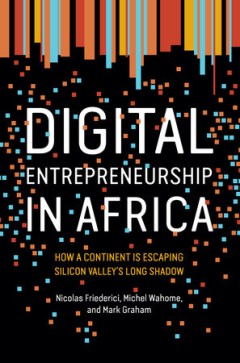
Digital Entrepreneurship in Africa: How a Continent Is Escaping Silicon Valle…
The hope and hype about African digital entrepreneurship, contrasted with the reality on the ground in local ecosystems. In recent years, Africa has seen a digital entrepreneurship boom, with hundreds of millions of dollars poured into tech cities, entrepreneurship trainings, coworking spaces, innovation prizes, and investment funds. Politicians and technologists have offered Silicon Valley�…
- Edition
- Ed. 1
- ISBN/ISSN
- 9780262362849
- Collation
- -
- Series Title
- -
- Call Number
- 338.04 FRI d
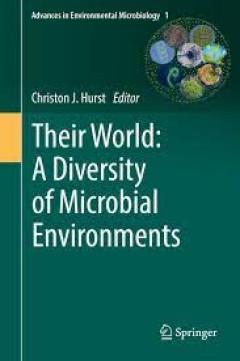
Their World: A Diversity of Microbial Environments
This volume summarizes recent advances in environmental microbiology by providing fascinating insights into the diversity of microbial life that exists on our planet. The first two chapters present theoretical perspectives that help to consolidate our understanding of evolution as an adaptive process by which the niche and habitat of each species develop in a manner that interconnects individua…
- Edition
- -
- ISBN/ISSN
- 978-3-319-28071-4
- Collation
- -
- Series Title
- -
- Call Number
- -
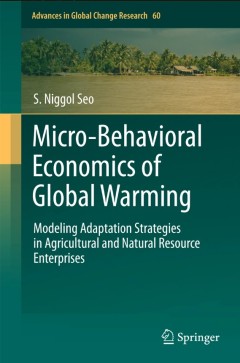
Micro-Behavioral Economics of Global Warming
This book presents a foundation for studying the micro-behavioral economics of global warming. The author develops an empirical model, named the Geographically-scaled Micro econometric model of Adapting Portfolios (G-MAP) in response to climatic changes and risks. The G-MAP model is applied to observed decisions of agricultural and natural resource enterprises in Sub-Saharan Africa and South Am…
- Edition
- 1
- ISBN/ISSN
- 978-3-319-15945-4
- Collation
- IX, 102
- Series Title
- Advances in Global Change Research
- Call Number
- -
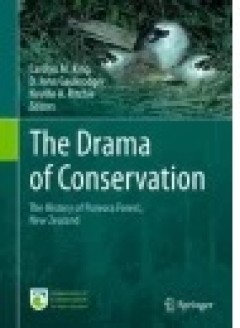
The Drama of Conservation
In sum, the book demonstrates how ecological study, combined with a respect for people and for nature plus a flexible, interdisciplinary approach to both local history and current scientific priorities, can be welded into a consistently effective strategy for addressing the pressing forest-ecology questions of our time.
- Edition
- -
- ISBN/ISSN
- 978-3-319-18410-4
- Collation
- XVII, 357
- Series Title
- -
- Call Number
- -
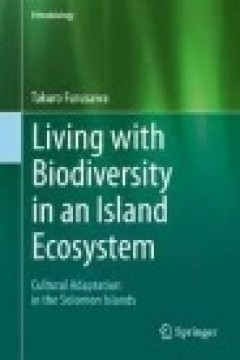
Living with Biodiversity in an Island Ecosystem: Cultural Adaptation in the S…
This book presents a detailed case study of ecological and cultural interactions between the people and their natural environment at Roviana Lagoon, Solomon Islands, a land of rich biodiversity. This volume documents the subsistence lifestyle of the people and their indigenous ecological knowledge, analyzes the effects of recent socioeconomic changes on the people and ecosystem, and proposes fu…
- Edition
- -
- ISBN/ISSN
- 978-981-287-904-2
- Collation
- -
- Series Title
- -
- Call Number
- -
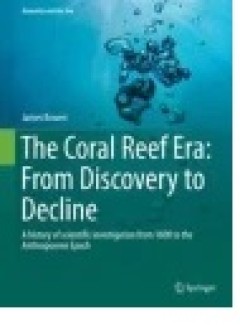
The Coral Reef Era: From Discovery to Decline
Relying heavily on primary source material Part 1 traces the sequential evolution of scientific thought and practice as the author explores the way this evolution is reflected in the search for understanding corals. At each stage, answers lead to fresh questions that challenge investigators to solve the riddle and new branches of science emerge. Then, with the first enigma finally understood, a…
- Edition
- -
- ISBN/ISSN
- 978-3-319-07479-5
- Collation
- XV, 195
- Series Title
- Humanity and the Sea
- Call Number
- -

Jakob von Uexküll: The Discovery of the Umwelt between Biosemiotics and Theo…
The book is a comprehensive introduction to the work of the Estonian-German biologist Jakob von Uexküll. After a first introductory chapter by Morten Tønnessen and a second chapter on Uexküll's life and philosophical background, it contains four chapters devoted to the analysis of his main works. They are followed by a vast eighth chapter which deals with the influence Uexküll had on other …
- Edition
- -
- ISBN/ISSN
- 978-94-017-9688-0
- Collation
- -
- Series Title
- -
- Call Number
- -
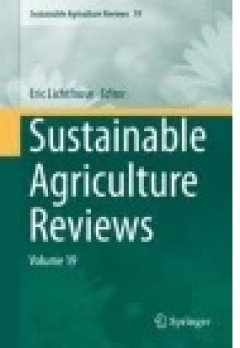
Sustainable Agriculture Reviews
This book features articles that analyze current agricultural issues and knowledge. It also proposes novel, environmentally friendly solutions that are based on integrated information from such fields as agronomy, soil science, molecular biology, chemistry, toxicology, ecology, economics and the social sciences. Coverage examines ways to produce food and energy in a sustainable way for humans …
- Edition
- Volume 19
- ISBN/ISSN
- 978-3-319-26777-7
- Collation
- VI, 399
- Series Title
- Sustainable Agriculture Reviews
- Call Number
- -

Their World: A Diversity of Microbial Environments
This volume summarizes recent advances in environmental microbiology by providing fascinating insights into the diversity of microbial life that exists on our planet. The first two chapters present theoretical perspectives that help to consolidate our understanding of evolution as an adaptive process by which the niche and habitat of each species develop in a manner that interconnects individua…
- Edition
- -
- ISBN/ISSN
- 978-3-319-28071-4
- Collation
- -
- Series Title
- -
- Call Number
- -
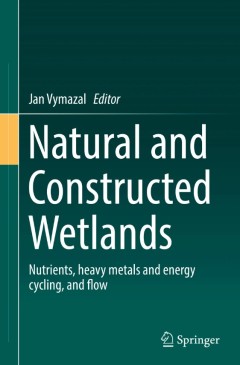
Natural and Constructed Wetlands:Nutrients, heavy metals and energy cycling, …
The book extends the knowledge on wetland ecosystem services based on the new research. The information combines the achievements gained in carbon sequestration, nutrient accumulation, macrophyte decomposition, wastewater treatment, global warming mitigation in constructed as well as natural wetlands across the globe. The book presents up-to-date results of ongoing research and the content of …
- Edition
- 1
- ISBN/ISSN
- 978-3-319-81774-3
- Collation
- XV, 295
- Series Title
- -
- Call Number
- -
 Computer Science, Information & General Works
Computer Science, Information & General Works  Philosophy & Psychology
Philosophy & Psychology  Religion
Religion  Social Sciences
Social Sciences  Language
Language  Pure Science
Pure Science  Applied Sciences
Applied Sciences  Art & Recreation
Art & Recreation  Literature
Literature  History & Geography
History & Geography